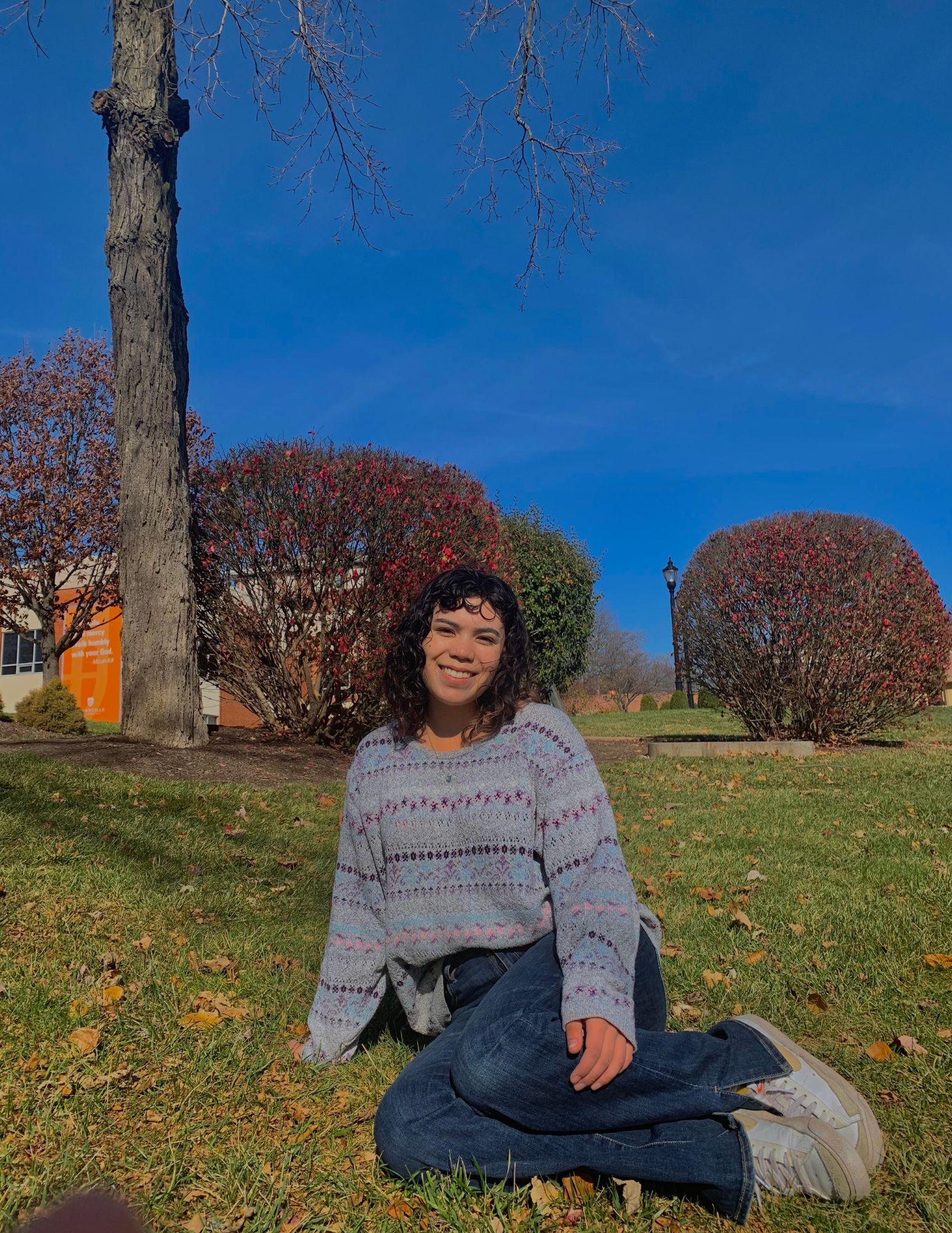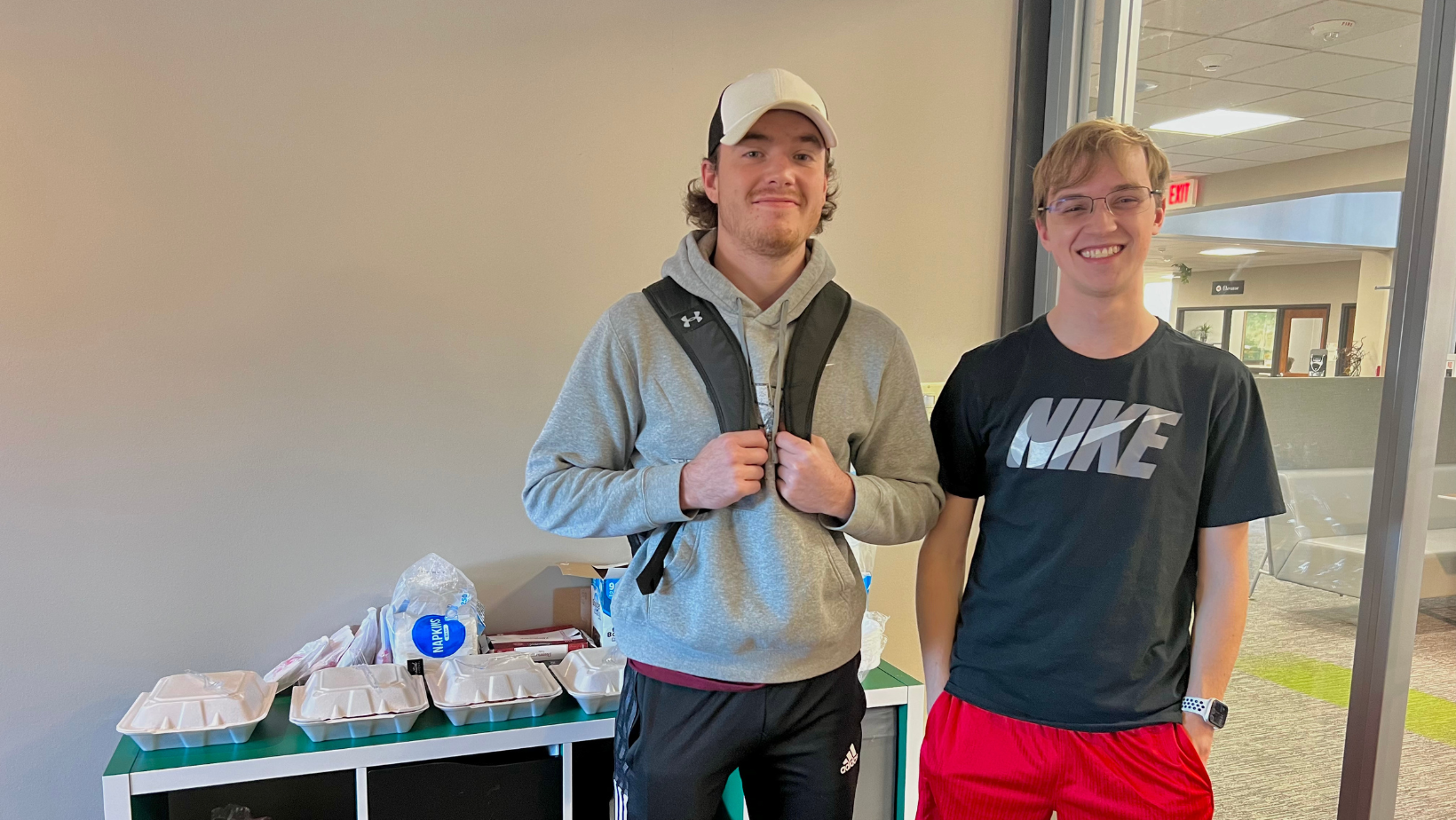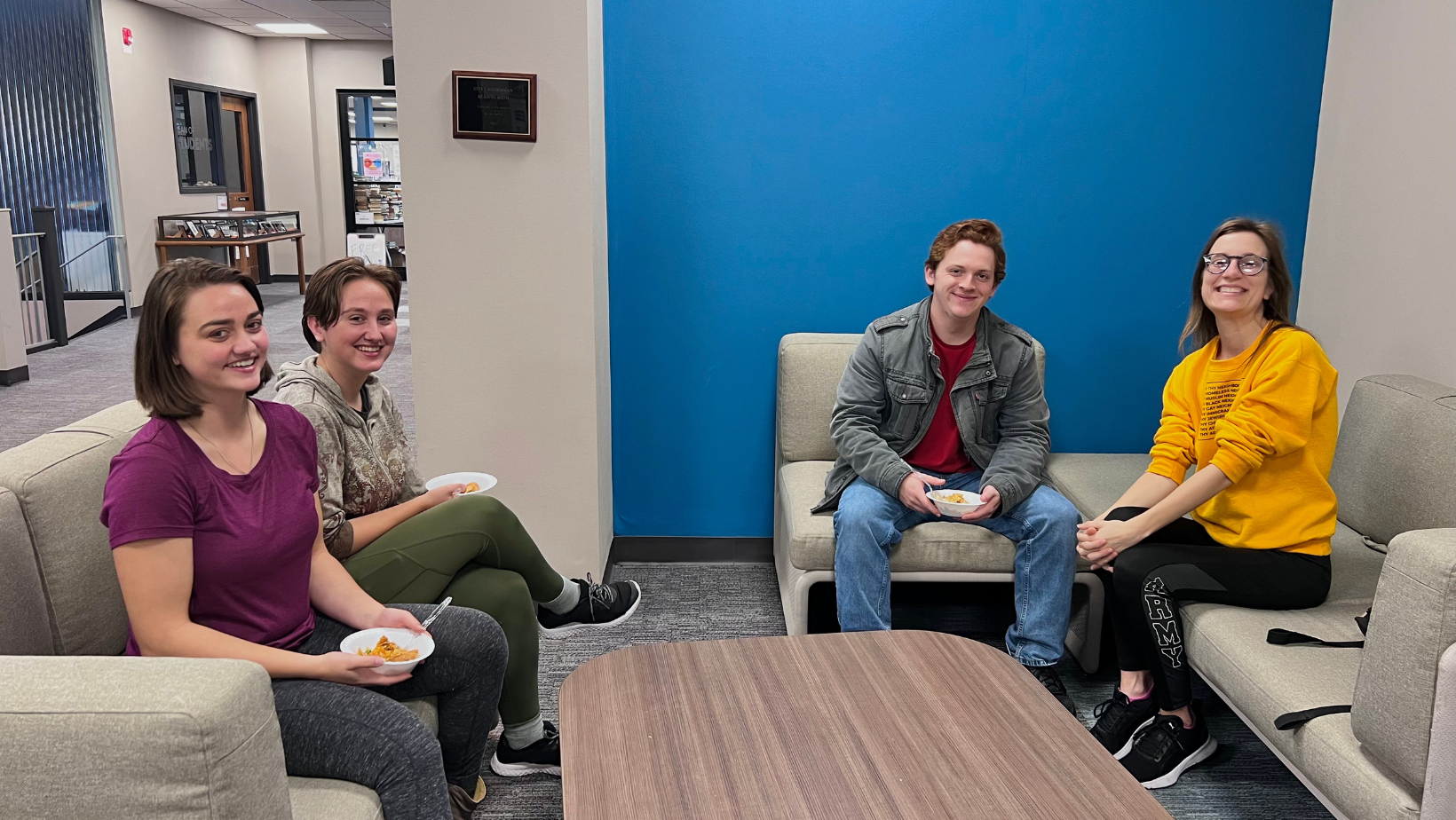Commuter students are getting more connected on campus
Published: November 10, 2022
“As a commuter student, I was not living with my friends, so sometimes they would go for a 2 am McDonald’s run and obviously I would be sleeping in my parent’s house at that moment.”

That is one fun experience on campus that Elisa Nava, the senate representative of Greenville University commuter students, missed out on during her freshman year. Her family lives really close to the campus, so after she looked at the pros and cons of staying at home, she decided to be a commuter student.
“At home, I have my own room, and I enjoy having that privacy while still spending a lot of time with my parents,” she said.
During her freshman year, it was a really big struggle for her to connect with other students, especially since that was 2020—the beginning of Covid-19. It was hard because everything was limited, and she couldn't hang out with people as much as she wanted to. Her friends were on the third floor of Burritt Hall, and they had to go all the way down to the entrance to pick her up as she did not have access to the residence hall.
“As the year goes on, a lot of my friends are taking harder classes, so obviously they cannot stay up all night like they were during their freshman year. My friends will also intentionally arrange their schedule to see me as I am not around campus as much as they are.” Elisa shared.
Currently in her senior year, she is involved in the Senate and TriBeta club, and its meetings occur at 9:30 pm and 8 pm, respectively. On both Tuesday and Thursday, the last class she has ends at 2:30 pm, therefore there is a very large gap of time between class and club meetings. Although it is not too hard for her to come back since she lives close to the campus, for other commuter students it is a real struggle.
The key to get connected: Be Intentional
Elisa’s recommendation for other commuter students is to spend time on campus, not just go to class and then leave. Students can go to the library or Jo’s Java so that they can have more chances to interact with other people. Pros of being a commuter student is that they have a car, so they can invite some of their classmates to go out for coffee.

GU Residence Life occasionally arranges lunches for commuter students, which is another great opportunity for students to get to know each other with the same background.
“If you want to make friends, be intentional, put yourself out there! I know it will be scary, but it is worthwhile. Don’t let the fact that you are a commuter student deter you from being a part of the campus community,” she emphasized. “When there is a meeting late at night, you can ask: Can I just Zoom in? if you cannot make it to the in-person meeting because your house is too far away.”
The challenges of being a Commuter Director
Sophie Yaunches is the Commuter Director of GU. She describes her experience working with commuter students as delightful but frustrating, as building a program for students from the ground up is a challenge.

“I am grateful that the students have been so gracious with Ken (my student assistant) and me as we navigate this new position,” Sophie said.
Commuter students face the challenge of being “in between.” They are students, but not residents. Many events, activities, and sports on campus happen to coordinate with residential students, so while commuters are GU community members, they may not have as many opportunities to participate as other students. You may think— “Why can’t they just stay on campus?”—Many commuters live at home for reasons like jobs, internships, familial responsibilities, etc. that require them to leave campus promptly. Getting out of class at 5pm and waiting around for an event at 9pm is a lot to ask of someone, especially with those other responsibilities. There is less flexibility given to commuters, who are asked to just do what residential students do even though they’re not residents for a reason.
The first solution to amend this issue is a mentality overhaul. Sophie realized that people need to recognize the difference between commuters and “traditional” students—but that does not mean they are not valuable members of the GU community. From there, it’s about working with more flexibility—letting the activity go for longer than a traditional activity, planning passive events that allow the planners to take a more “hands-off” approach, or doing something in a “non-traditional” location like the library.
“I’m thinking of a game day in the Hub starting from lunch until dinner—a come and go type of event that allows both residential students and commuters to participate with no strict scheduling pressure,” Sophie illustrated.
For Sophie, the best thing about being the Commuter Director has been bringing awareness to the unique experiences of commuters. Since she was a student, this group has been fighting for more recognition, so to be someone to give a voice has been very rewarding for her. There is a lot left to do; there is still a lot of confusion surrounding expectations, needs, and wants from faculty, staff, and residential students. Currently, Sophie and her team are still looking to establish a commuter-only space where students can get to know one another, relax between classes, and cook their own meals.
“I’m still learning how to communicate to a group of people who are “in between.” It’s not perfect, but as I said before there has been a lot of grace offered and I am grateful,” she said.

